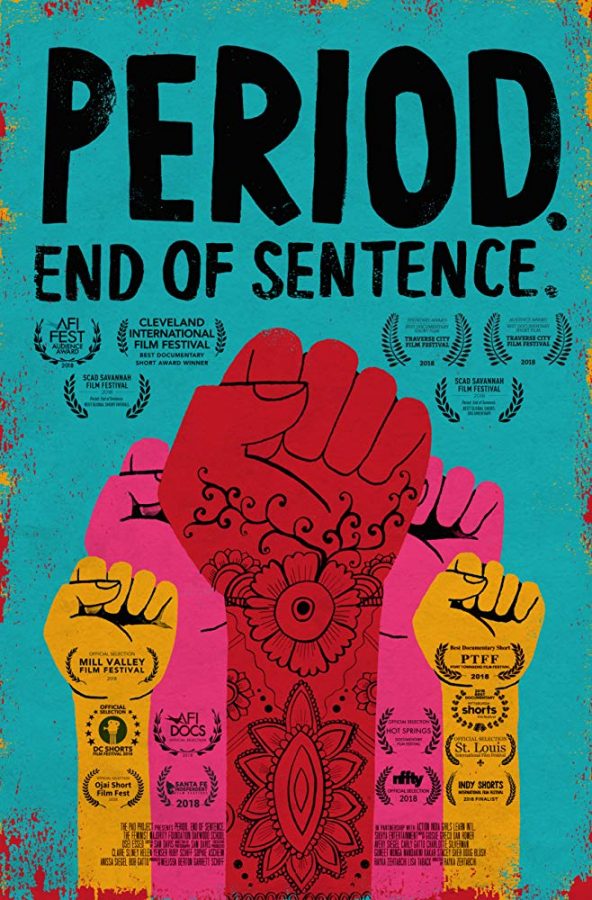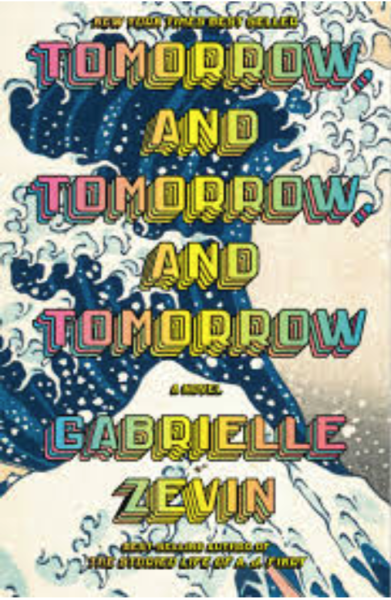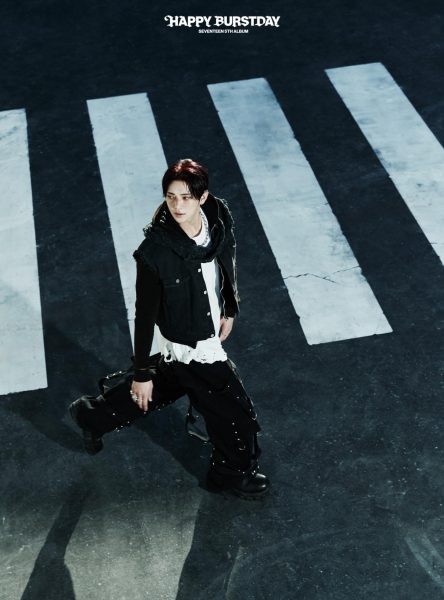Movie Review: “Period. End of Sentence.”
This documentary gives a comprehensive account of a rural Indian town’s unique story about sanitation pads. It shows women breaking the stigma of menstruation and breaking the chains that bind them to their periods.
I first heard about this documentary on Sunday night, during the 91st Annual Academy Awards. My first thought, watching this film win an Academy Award for Best Documentary Short Subject, was: “Oh wow, a movie about grammar, how weird.” My second thought was: “Maybe it’s a piece about prison rights and false imprisonment.” Regardless, I turned back to my friends and paid no further attention until the next day.
It wasn’t until then, when I was still in the documentaries-is-for-losers mindset, that I found out what “Period. End of Sentence.” is actually about. The movie is about periods, as in menstruation. Now that is a subject that I, as a person who goes through this horrid event once a month, can get behind. I immediately hopped onto the various streaming services to find which one had this documentary. When Netflix popped up, I knew exactly what I was going to spend the next hour doing.
This movie describes a situation that only one gender participates in, but opens up the perspectives so that anyone, regardless of sex, can understand the issue. The story focuses on the remote village of Hapur, which is just outside of New Delhi, India. It’s filmed in the stereotypical documentary style, in which the documentarian asks questions behind the camera and the camera only captures the interviewee’s response. The first question asked is “What do you know about periods?” The camera then turns to clips of different people (of various genders and ages) answering the simple question. The responses mostly consist of giggling girls and confused boys. One smug boy even says that having periods is a disease that plagues most women.
The film then goes on to explain what happens to a woman, who lives in a rural town, if she is having her period. These women typically use loose scraps of cloth that they find lying around, as a barrier against the blood. These scraps of cloth are generally unsanitary and useless to block the bleeding. During menstruation, these women are bound by their periods. They can’t concentrate on anything but the constant blood flow and the risk of staining their clothes because of the blood. Many of the women, when they first get their period, try at first to use cloths to block the bleeding so that they continue with their education or other various activities, but many end up dropping out because of the constant distraction. These women view their first period as a curse, as an end to their freedom and their chain to the duties of womanhood.
This town, though, handles menstruation a little differently. Instead of desperately cleaning pieces of cloth to use as barriers, they make their own pads. A company comes to the rural town, and installs a sanitary pad machine and teaches the women to make pads for themselves, but also for the neighboring villages. These women gain not only a safe, sanitary menstruation product but also a job from which they could make an income and support themselves and their family. They named it “Fly,” symbolizing the freedom they gained from having this unique job. The machine not only allowed women to be breadwinners of the family, but it also broke the stigma and allowed for more understanding between the men and the women. The transition was dramatic and many of the men even wanted to get a job working the machine because it was seen as such a novel and amazing device. One of the women described how usually a male cousin is supposed to give the women a gift if he comes to visit, but because of the new income, the woman as able to buy her male cousin a luxurious gift. These women traveled to neighboring villages and gave demonstrations, showing their sanitary pads. They ended up selling their cheap, helpful products to local shops and to women in general.
The reason I love this documentary is that it shows a situation that disenfranchises an entire sex, but opens up the discussion to everyone. The problem explained in the documentary is not relegated to rural India, but encompasses developed nations, as well. The reason that there are taxes on sanitary products and the reason why people consider them to be luxury items is due to a lack of understanding. This documentary allows everyone, regardless of gender, to understand the true nature of menstruation. This documentary is amazing. Period. End of Sentence.

Sabrina Li ('20) is a Staff Writer for The Echo. She spends her days binge-watching Netflix shows and shamelessly singing in and out of the shower. Her...

















































































































































